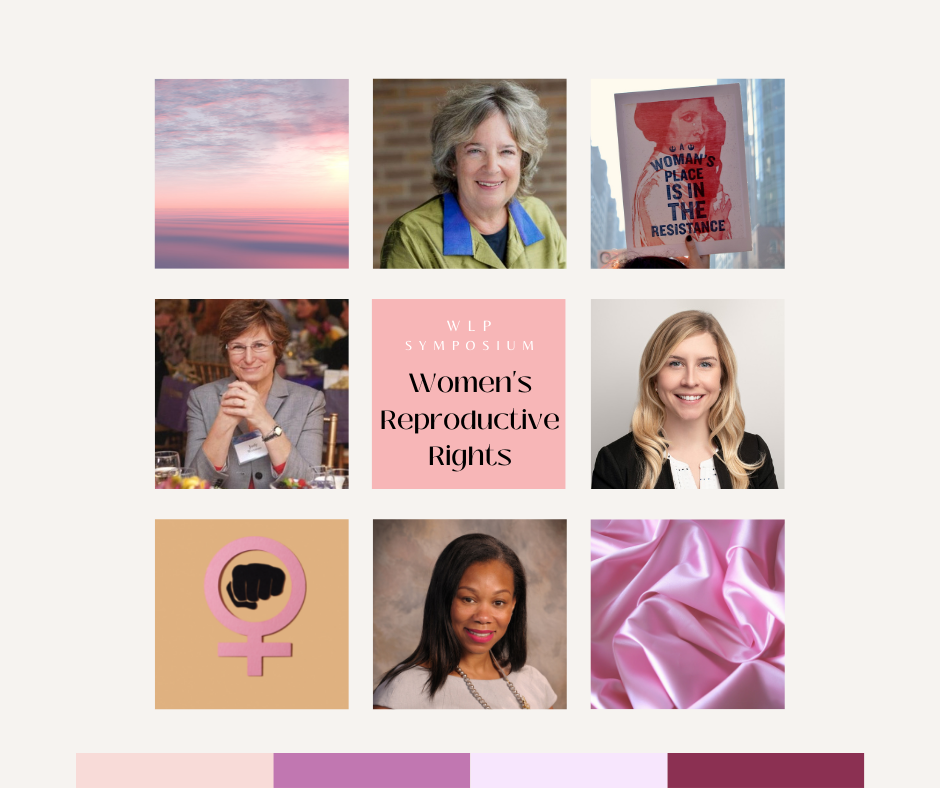During a previous symposium, guest panelists Judy Waxman, Takina Wilson, Nan Aron, and Alison Jones spoke on the challenges of women’s health and reproductive rights today, and the importance of teamwork in alleviating the obstacles. Laine Schlezinger from the IAC cohort recalls how “each panelist at symposia on Thursday night brought unique experiences and access to information enhanced the conversation on reproductive justice. The team-- a snapshot of the countless people fighting for reproductive rights-- consisted of public health advocates, legal scholars, and non-profit founders”. Schlezinger then shared the importance of teamwork and activism in her own life. She states, “when I began looking into improving the LGBTQ inclusion and education at my high school, the first thing my mentor asked was ‘Who’s on your team?’. A well-rounded, diverse team doesn’t just enhance the activism surrounding LGBTQ education or reproductive justice; it is an asset that can support any cause. For example, the fight against climate change needs both indigenous caretakers of the land and the world’s top environmental scientists. Ultimately, a cause is only as strong as its team, and if the team is multifaceted, dynamic, and diverse, it is better equipped to solve any roadblock that it comes across.”
Emily Greenup from the IAC cohort reflects how Takina Wilson from Planned Parenthood “explained how important it is to disseminate information to patients who are unaware of the organization’s multitude of services and willingness to provide funding for those who cannot afford the procedure. Marketing and advertising for their services is key for women to be aware of their options and to prevent them from feeling trapped within any decision.
Methods of mass advertisement can apply to other organizations as well, such as the EMAA Project. The EMAA Project works to remove outdated barriers to medication abortion care through changing laws and implementing new ones. Graphic design would be of great use towards helping the EMAA project as well by creating posters, social media posts, ads, etc. to spread awareness for different bills and supreme court cases regarding reproductive rights.
Utilizing my passion for the arts alongside those who are experts on a diverse range of topics is crucial for creating a strong and successful group that can conquer any issue with full force. Using my specialties and skills, I would create infographics and engaging visuals to help grab the attention of all audiences and inform them on how Planned Parenthood can provide their services.”
While activism has exponentially moved in the upward direction in the past decade, society still has much to accomplish. Katelyn Kovach in the IAC cohort tells her personal experience with barriers of fighting women’s reproductive rights. She says that “ I come from a very conservative area and attended Catholic school from middle to high school. I have a specific memory of being told by a teacher in the seventh grade that any real mother would sacrifice her life for her child; essentially, she told the class abortion is a sin in any case, even when the mother’s or baby’s life is in danger. I always felt that this was wrong; despite the people around me, I have always felt that a woman should have the safe right to choose.
Awareness when it comes to reproductive health is such a large issue and component of the problem. Reproductive health and abortion is something that has become so politicized, and it’s sad to see. It is one of those issues people will look at and vote for representatives based only upon their view of reproductive health. I am also a major advocate for sex education in schools, especially because growing up in Catholic school, there is so much misinformation, propaganda, and brainwashing of children when it comes to abortion and other reproductive rights.”
Individuals can make an impact in advocating for women’s health, but Hope Rwaga from the SHM cohort argues how the disparities of women’s health is an internalized and systematic issue. She says that “women’s reproductive health is a topic that has a lot of views and different opinions that trace back to history. A women's health issue that I’m passionate about is maternal mortality, specifically with Black women. It has been seen that Black women experience a higher rate of deaths after pregnancy compared to any other race. This issue mainly occurs for Black women in the United States population and not in other countries across the globe. This proves that this issue is not a ‘race thing’ as society portrays it, but a flaw in our healthcare system for the black community. The healthcare system does not focus on the most marginalized and allows bias to occur within the field causing these rates to increase.”


